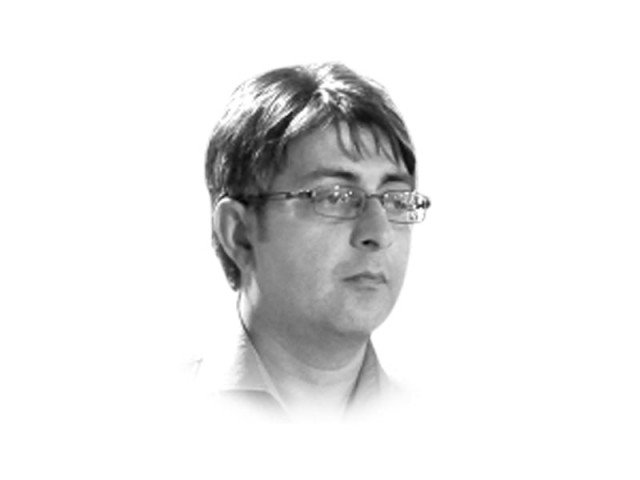Social mobility in the Islamic republic
When people acquire some financial power, they also want to take their political fate in their own hands.

The writer is an Islamabad-based TV journalist and tweets @FarrukhKPitafi
Also, in our society, there are umpteen barriers in the way of upward mobility. Banks prefer to trade with people who already have some net worth. Venture capitalism is almost moribund. There is a rich class which aggressively repels you at the mildest suggestion of inclusion.
In the working class, you do witness some upward movement but there too an old tested formula works seamlessly. Government and businesses alike attract the brightest of the nation when they are young, give them some degree of clout, power and financial autonomy. Then, it takes decades for them to make it to the top. By the time they reach the top, they reach the age of superannuation and with a few perks, retire to the same nothingness whence they had come. Meanwhile, even the most inept member of the elite’s younger generation replaces the old guard at the very top without any eyebrow being raised. That means that unless you are incredibly lucky (and there are a few examples), if you want to make it big in this godly republic, you have to break the system through cheating and all other means possible. So, in effect, there is a premium placed on corruption and abuse of position.
In the tribal and feudal parts of this country where this inertia acquires manic proportion, even violence becomes a method to acquire status. You will notice that apart from the state’s abandonment of the tribal elders, one more reason for their class’s total decimation is the emergence of younger, poorer challengers who have milked the religious dialect to their full advantage in order to gain power. Indeed, terrorism and the new process of elite formation are going hand in hand and this is no excuse for the absence of a comprehensive counterterrorism policy. We will have to deprive the terrorists of all possible sources of oxygen to put an end to this menace. In the urban areas, social and financial reforms can ensure an end to corruption.
The biggest problems are our banking sector and the lack of documentation. The banking sector requires massive restructuring. In the absence of detailed and effective bankruptcy laws, family loans and liabilities are passed on to newer generations which makes it impossible for the young to break the vicious cycle of debts they are trapped in.
On the financial side, the prime minister’s youth loan scheme is an excellent step in the right direction. While it needs to grow further, there is a need for the project to have a well-staffed, permanent secretariat which should work as a think tank to supply the new start-ups with fresh ideas and direction. The fear of bank defaults in such a progressive and ambitious project with well-defined contours is a risk worth taking. Perhaps, the provincial governments can copy this model too.
On the political front too, there is need for these barriers to be removed. When people acquire some financial power, they also want to take their political fate in their own hands. Our good friend Dr Ijaz Shafi Gilani believes that the factor behind the relative success of the PTI is its readiness to accept fresh, younger candidates. However, if progress has to made, it is an absolute must that local government elections be held as soon as possible. Local bodies serve as better political nurseries than student unions.
Published in The Express Tribune, January 11th, 2014.
Like Opinion & Editorial on Facebook, follow @ETOpEd on Twitter to receive all updates on all our daily pieces.















COMMENTS
Comments are moderated and generally will be posted if they are on-topic and not abusive.
For more information, please see our Comments FAQ